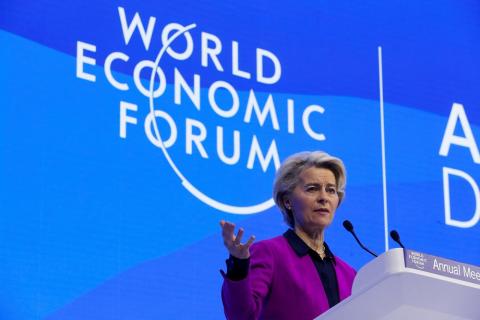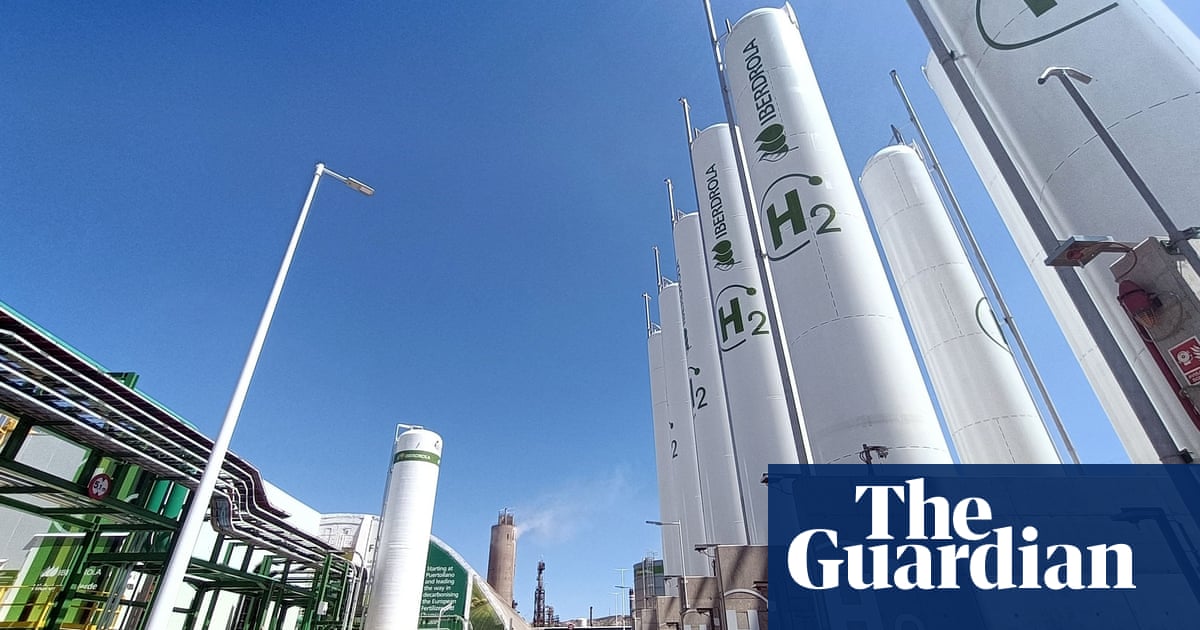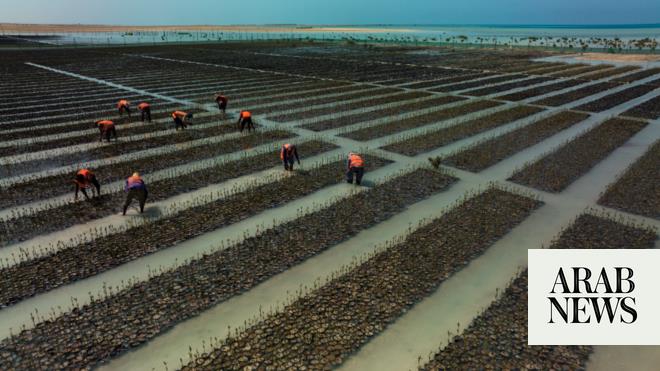
ADVERTISING
GLASGOW — British Prime Minister Boris Johnson launched Tuesday, at the COP26 Climate Summit, an international plan to deliver clean technology around the world by 2030.
More than 40 global leaders have signed the international agenda, including the United States of America, India, European Union, China, developing economies and a number of the most vulnerable countries to climate change, representing more than 70% of the world"s economy.
According to the plan, countries and companies will coordinate and enhance their climate procedures each year to significantly scale up, accelerate and disseminate the development scope of clean technologies to be the most affordable and accessible option.
“By making clean technology the most affordable and accessible option, we can reduce emissions around the world,” Johnson said in a statement today. He added that this plan would take that forward, so that clean technology will be within everyone’s reach by 2030.
Dubbed the "Glasgow Breakthroughs", the plan will drive the global push to halve emissions by 2030, which is crucial to maintaining maximum temperatures at 1.5°C, and will support the main goals of the UK"s presidency of COP26: securing global action to gradually phase out coal.
Addressing the Glasgow conference at the close of day two, Johnson warned that despite Tuesday"s announcements, "We must take care to guard against false hope and not to think in any way that the job is done."
Johnson said that it was easy to get caught up in a mood of "exaggerated enthusiasm" and there was still a "very long way to go."
But he added that he was "cautiously optimistic", referencing the major pledges made Tuesday after two days of talks with 120 world leaders. On the issues of "coal, cars, cash and trees" the UK prime minister believes that "we can certainly begin to tick three of those boxes."
After an opening day marked by "doomsday" rhetoric, it"s time for action at COP26. More than 100 countries, including EU nations, have just announced a new plan to curb methane emissions by 30%.
Several other major deals are being signed on Tuesday, notably an agreement by more than 100 world leaders to end deforestation by 2030.
The world leaders" summit concludes today. After outlining their national commitments and setting out broad outlines of agreements, they will let diplomats and other government officials hammer out the details.
The British presidency is facing criticism about accessibility and inclusiveness at the conference. Civil society groups have complained of "unprecedented restrictions" to negotiations, while an Israeli minister using a wheelchair was unable to access the summit Monday.
A delegation of 12 mayors from some of the world"s major cities have called for action to tackle climate change as they travelled to Glasgow for the COP26 summit. As leaders leave COP26 the "eyes of the world" are on negotiators
After two days of talks, negotiators will take over from world leaders to work out the details of each country"s climate pledges.
"The clock on the doomsday device that I talked about is still ticking but we"ve got a bomb disposal team on-site and they are starting to snip the wires," said Johnson.
He concluded with this message to negotiators: "The leaders of the world may have left COP now but the eyes of the world...are on you."
The Duke of Cambridge Prince William, who welcomed Earthshot Prize winners to COP26, said he had "immense pride" for the winners and finalists of the first Earthshot Prize.
The new annual award was set up by the Duke to recognize those making efforts to save the planet. Among the winners were Costa Rica, for protecting and restoring nature, and Milan for its food waste hubs.
He said that the prize had helped give people “much-needed optimism and hope that we can indeed repair our planet.”
Following the Indian Prime Minister Narendra Modi’s announcement that the country will reach net zero emissions by 2070 there was mixed reaction from COP-watchers.
While many have welcomed the unprecedented pledge — accompanied by a suite of new 2030 targets — others have lamented that it is out of step with Western countries’ 2050 aims.
But some critics are sorely lacking historical and geographical context. As environmental campaigners have pointed out, it is “deeply unfair” to blame middle-income countries like India and China for the climate crisis.
The UK’s cumulative historic emissions per capita are 5.5 times higher than China’s and 20 times higher than India’s, a Carbon Brief analysis of emissions between 1850 and 2021 shows.
And as India only gained independence from Britain in 1947, a great deal of its pollution is really the colonizer’s responsibility.
“The global north has a moral and historic obligation to act first,” said Daniel Willis, climate campaigner at the Global Justice Now group.
“We in the rich world have built our economies by fueling the climate crisis, reaping the benefits of carbon emissions while destroying the planet. This is fundamentally our problem to address, but we have repeatedly broken our own climate promises.”
“The UK and America are the biggest emitters,” Abigail, an activist protesting at COP26 told Euronews Green last night. “I don"t want to hear about China and India right now — it"s a load of rubbish, because historically, we are the biggest emitters.”
In another development Colombia committed to protecting 30% of its land by 2022 — 8 years ahead of schedule. President Duque said that one of the most important objectives was to back this pledge with green finance.
Meanwhile, the US and the UAE announced on Tuesday the launch of “AIM for Climate” at COP 26, a $4 billion investment program in climate-smart agriculture and food systems over the next five years. The initiative has the support of over 30 governments, the AIM for climate press release said.
Also, the United States and several European countries plan to provide funds and expertise to help South Africa ditch coal and roll out more renewable energy.
German officials said South Africa would receive about $8.5 billion in loans and grants over five years to manage the country"s transition away from coal-fired power plants, which are a major source of greenhouse gas emissions. South Africa gets about 90% of its electricity from coal-fired plants. — Agencies












